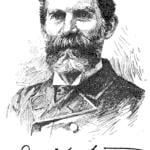Youth ministry focuses on the basics, and one of the basics of the entire Christian message and community is missional. Kenda Dean's new book, Almost Christian: What the Faith of Our Teenagers is Telling the American Church, examines that theme in chp 5, and her chp is as good a summary of the meaning of "missional" as you are likely to find. Her concern is Moralistic Therapeutic Deism, and MTD is inherently individualistic, self-expressive, and selfish. The Story of God in the Bible is entirely other: it is a Story of other-orientation. God sent his Son to be with us and God calls his people to extend that sending-love and dwelling-with-love to others. She calls parents, churches and youth groups to develop a missional imagination. She calls us to "waste" our life for others -- she's playing with the word "waste," where she ties Mark 14:4 (the woman's waste of ointment on Jesus) and Jesus's use of the same word for his disciples to "lose" [waste] their life for him and the gospel (8:35). In this one finds the essence of a missional imagination. Read more















